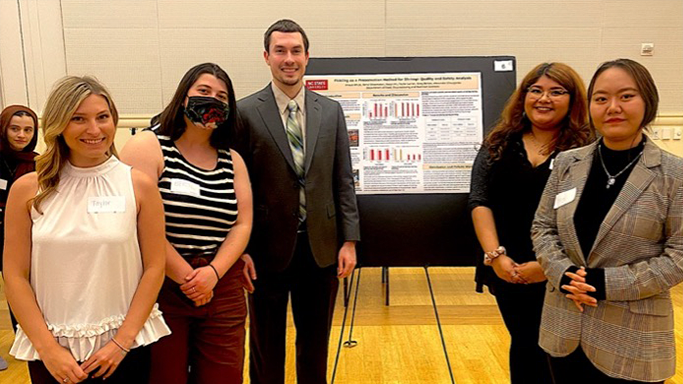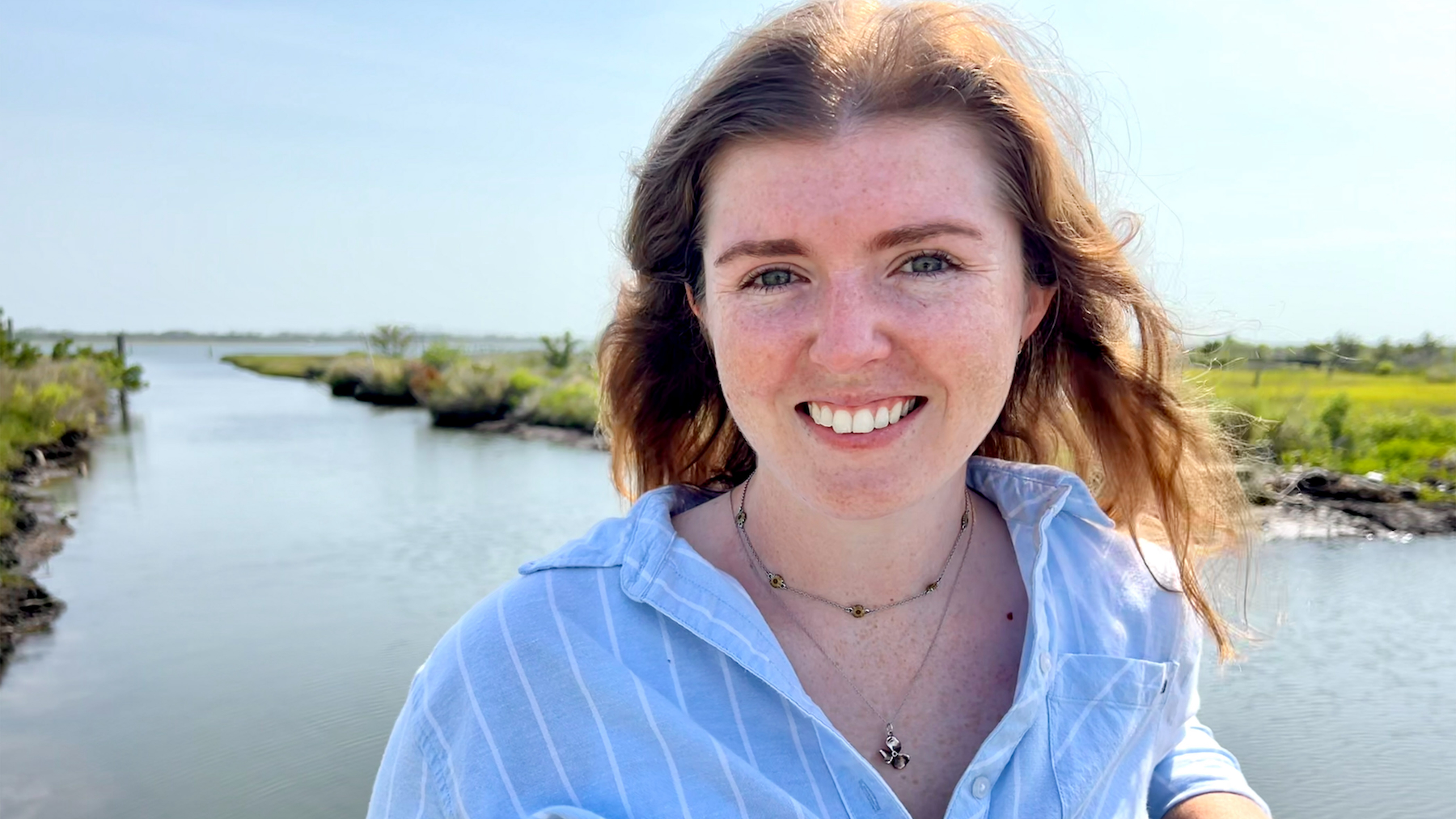Seafood Lab Researches Methods to Extend Shelf Life of Shrimp

The NC State University Seafood Lab at CMAST has been working with four undergraduate students on a research project to develop a pickled shrimp product to evaluate the quality and safety of a process to preserve raw shrimp. Alex Chouljenko, director of the CMAST seafood lab, and Greg Bolton, research assistant, designed and led the study. Participating students recently presented a poster at the NC State Undergraduate Research and Creativity Symposium to explain the process of the study and the results, as indicated below.
Shrimp is one of the most widely consumed seafoods in the United States, and North Carolina small-scale fishermen and seafood processors contribute to the commercial shrimp supply. Unfortunately, though, shrimp is also highly perishable. Alex says pickling shrimp could solve this problem. “Pickled shrimp are not currently available in the marketplace, and research on this topic is limited. A pickled shrimp product developed for the commercial market would support small-scale fisheries and processors to extend shelf life and allow for off-season availability of shrimp products.”
The study involved two phases using raw white shrimp, supplied by local seafood processor, Pamlico Packing Co., Inc., in Grantsboro, NC. In phase one, shrimp were brined using different salt concentrations. In phase two, the shrimp were brined and then pickled, with ceviche and citrus flavors added. According to Alex, the ceviche-pickled shrimp had the most desirable properties overall. “Development of the pickled shrimp product may expand the seafood market, allow consumers to have more access to healthy and safe food options, and increase revenue for local fisheries…to provide a shelf-stable product that is available year-round.”
This study is just one example of ongoing research and collaboration conducted through the seafood lab. According to Dr. David Eggleston, NCSU Professor and Director of CMAST, “Our seafood program [continually…works] with the seafood industry training people…on safe handling of seafood, developing new seafood products, and identifying ways to improve shelf-life of seafood products.”


